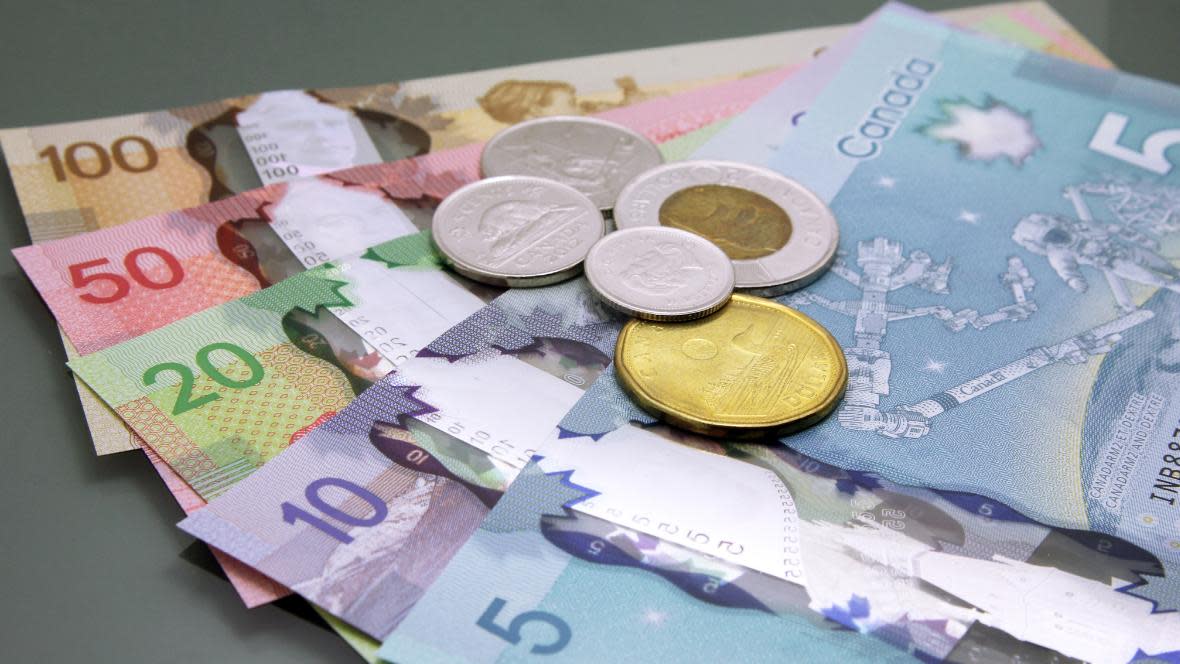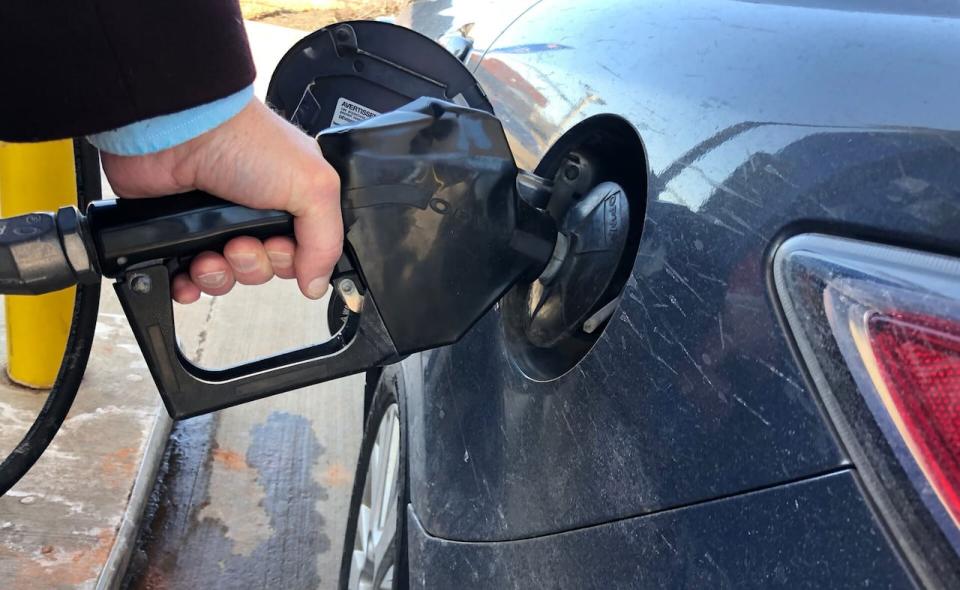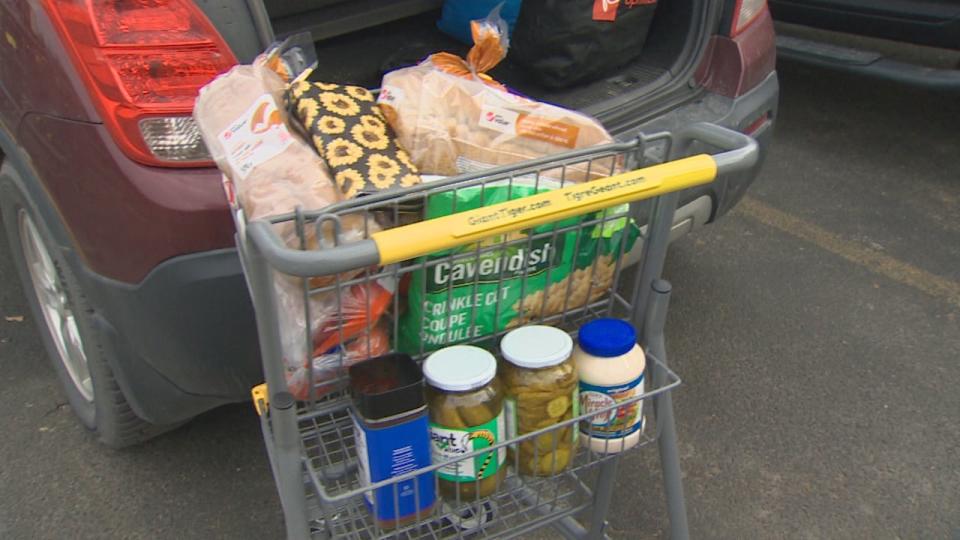New year, new fees: What costs Calgarians can expect to see change in 2024

Mark your calendars, because the time to pinch pennies is here … well, still here.
If you thought everything was expensive already, the new year will be bringing new costs. From provincial and federal taxes to municipal fees and passes, Calgarians can expect a variety of price increases slated to come into effect in 2024.
Fare's fair?
Throughout 2023, fares for Calgary Transit have been frozen. Now, the fare freeze has defrosted — city council voted in favour of transit fare increases back in November, so Calgarians will see a three per cent transit fare increase annually over the next four years.
Effective Jan. 1, 2024, transit riders can expect to pay anywhere from five cents to $10 more for Calgary Transit, depending on what fare type you buy.
Service fees for city-operated skating rinks, swimming pools, climbing walls, gyms and more will see cost increases, too.
For recreation services, Calgarians have three monthly passes to choose from — there's a Child Pass Plus, Rec Pass and Rec Pass Plus — all of which will see price increases.
A monthly-paid for Rec Pass Plus gives Calgarians access to all of the city's recreational amenities.
Here's a breakdown of those service fee increases:
And if you plan on taking a vacation and getting to the airport by taxi, expect to be charged an airport access fee for a drop-off at YYC International starting on Jan. 15, 2024.
That said, the airport's taxi tax for cab pick-ups from the airport will fall from five bucks to $4.50.
Car wars: The phantom monies
The days of Jason Kenney's 2022 fuel tax pause are also coming to an end, and the Government of Alberta will be pumping up what Albertans pay at the pump.
Fuel stations across the province can be expected to bump up prices of gasoline, diesel and propane on Jan. 1 to reflect the reinstatement of Alberta's oil price-based fuel tax.
The gas tax will work on a sliding scale, according to the Albertan government, based on the West Texas Intermediate (WTI) crude oil benchmark. Here's what that looks like:
If the WTI — the average price per one barrel of oil in US dollars — is under $90 US, the fuel tax will be 4.5 cents per litre.
If the WTI is under $85 US per barrel, the fuel tax will be nine cents per litre.
And finally, if the WTI falls below $80 US, the fuel tax will be reinstated in full, at 13 cents per litre.
Oil was sitting at $71.65 US per barrel midday Saturday.
Still, according to GasBuddy on Dec. 30, 2023, the average price of gas in Alberta is about $1.15 per litre, the lowest in the country, and Premier Danielle Smith told her radio show listeners that this will continue even with the fuel tax's return.

Alberta's fuel tax is coming back into effect this January. (Kevin Yarr/CBC)
On April 1, one of the key charges set to take place in 2024 is the federal carbon tax — but it's no April Fools joke, and many Canadians aren't laughing.
The carbon tax is set to increase fuel prices by around three cents in Alberta and several other provinces.
Here are a few examples of some fuel price changes Albertans can expect to see in the coming year:
Carbon tax on gasoline will increase from about 14 cents per litre to 17 cents per litre.
For natural gas, costs will go from roughly 12 cents per cubic metre to 15 cents per cubic metre.
Propane will go up from about 10 cents per litre to just over 12 cents per litre.
It's accrual world
Feeling spent yet? Don't forget about rent.
According to the Consumer Price Index from StatsCan, Alberta saw rental prices soar in 2023 at the fastest pace in the last 40 years.
A December 2023 report from Rentals.ca suggests that the average cost of a one bedroom unit is $1,736 per month in Calgary as of November — a 10.6 per cent increase year-over-year according to th Rentals.ca database.
For Alberta, the report estimates that the overall average rental cost in the province is $1,695 — which encompasses all unit types — marking a 16 per cent increase year-over-year.
If inflationary trends continue throughout 2024, Alberta renters can expect that housing will remain a significant cost.
Is any of this making you crave savings? Well, you might be left hungry.
Earlier this month, the 14th annual Canada's Food Price Report was released, put together by the Agri-Food Analytics Lab, comprising of Dalhousie University, University of Guelph, University of British Columbia and University of Saskatchewan.

According to Canada's Food Price Report, an average Canadian family of four could see an additional $700 added to their grocery bill in 2024. (Pat Richard/CBC)
The report predicts that while grocery store prices for some food essentials are falling, a typical Canadian family of four will spend $16,297.20 per year on groceries in 2024 — roughly a $700 increase, between 2.5 and 4.5 per cent, from 2023's average grocery bill.
But the report also suggests that while grocery bills are set to become pricier overall, the rate of price increases will slow in 2024.
And it seems students won't be getting any tuition cost breaks in the coming academic year either.
According to data from StatsCan, in the 2023-2024 academic year, Canadian students enrolled full-time in degree programs will pay, on average:
$7,573 for graduate studies, representing around a two per cent increase from the year prior.
$7,076 for undergraduate studies, representing a three per cent increase from the year prior.
For many Canadians, contributions to the Canada Pension Plan (CPP) and employment insurance (EI) premiums are set to go up — which isn't entirely out of the ordinary — but you still might want to factor it into your budget.
In September, the Canada Employment Insurance Commission confirmed that the 2024 EI premium rate will see a three per cent increase.

Calgarians will see fees associated with recreation and transit increase in the new year, but 2024 holds even more new costs provincially and federally. (Canva)
The new rate for all provinces excluding Quebec, who manages its own insurance, will be $1.66 per $100 of insurable earnings for employees, and $2.32 for employers that pay 1.4 times the employee rate. In 2023, those numbers were $1.63 for employees and $2.28 for employers.
Again, for all provinces except Quebec, the first tier of the maximum pensionable earnings under the CPP will be $68,500, up $1,900 from 2023. The basic exemption amount will remain the same as 2023, at $3,500.
But starting in 2024, a new, higher second tier of pensionable earnings will be introduced at $73,200 to determine additional CPP contributions, known as CPP2.
Here's how 2024's CPP breaks down:
Employee and employer CPP contribution rates will remain at 5.95 per cent in 2024.
The employee and employer CPP2 contribution rate will be four per cent, with a maximum contribution of $188.
The self-employed CPP2 contribution rate will be eight per cent, with a maximum contribution of $376.
Glass half full or wallet half empty?
If all of the rising costs make you feel like having a stiff drink, the alcohol tax is sure to give you the booze blues.
After backlash on their proposal to increase the excise alcohol tax to 6.3 per cent in 2023 to match inflation, the federal government capped it at two per cent for one year only as an affordability measure.
Canada's excise duty on spirits, wine and beer means the one year of two per cent tax will expire at the start of April, so Canadians can likely expect to pay more when they purchase alcoholic beverages next year.
Overall, if your New Year's resolution is to save a buck, it looks like tough luck.

